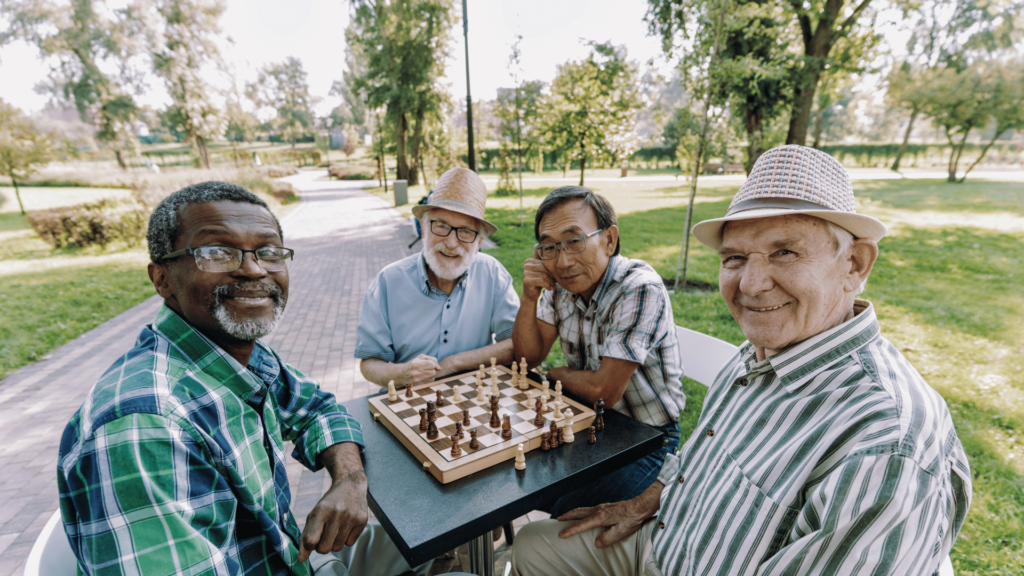Strategies for Supporting a Loved One
with Dementia or Alzheimer's
Dementia and Alzheimer’s disease present unique challenges, not only for the individuals diagnosed but also for their families and loved ones. The journey can be filled with uncertainty, emotional strain, and the need for constant adaptation. However, with the right strategies, compassion, and support, you can significantly enhance the quality of life for your loved one and find moments of connection and joy amidst the difficulties.
Understanding the complexities of dementia and Alzheimer’s is the first step toward providing effective support. This blog post aims to equip you with practical strategies and insights to navigate this challenging journey with greater confidence and empathy.
Understanding Dementia and Alzheimer's
Before diving into support strategies, it’s crucial to understand the basics of dementia and Alzheimer’s.
- Dementia: An umbrella term for a range of symptoms associated with a decline in memory, thinking, and social abilities severe enough to interfere with daily life.
- Alzheimer’s 1 Disease: The most common form of dementia, accounting for 60-80% of cases. It’s a progressive disease that destroys memory and other important mental functions.
Both conditions affect individuals differently, but common symptoms include:
- Memory loss
- Confusion and disorientation
- Difficulty with communication
- Changes in mood and behavior
- Challenges with problem-solving and decision-making
Creating a Supportive Environment
A stable and supportive environment can significantly impact the well-being of someone with dementia or Alzheimer’s. Here are some key considerations:
- Maintain a Routine: Consistent routines provide a sense of security and familiarity. Establish regular schedules for meals, activities, and sleep.
- Simplify the Environment: Reduce clutter and distractions to minimize confusion. Use clear signage and labels to help with navigation.
- Ensure Safety: Implement safety measures to prevent falls and accidents. This includes securing hazardous items, installing handrails, and improving lighting.
- Create a Calm Atmosphere: Minimize noise and create a soothing environment. Use soft lighting, calming music, and familiar objects to promote relaxation.
Effective Communication Strategies
Communication can become challenging as dementia progresses. Here are some techniques to facilitate better interaction:
- Speak Slowly and Clearly: Use simple language and short sentences. Avoid complex instructions or jargon.
- Maintain Eye Contact: This shows respect and helps maintain their attention.
- Use Non-Verbal Cues: Pay attention to body language and facial expressions. Use touch and gestures to convey warmth and reassurance.
- Listen Patiently: Allow ample time for them to respond. Avoid interrupting or correcting them.
- Focus on Emotions: Acknowledge and validate their feelings, even if their words don’t make sense.
- Use Reminiscence Therapy: Encourage them to share memories and stories from their past. This can stimulate cognitive function and promote emotional well-being.
Supporting Daily Living Activities
As dementia progresses, individuals may require assistance with daily tasks. Here are some strategies to provide support while maintaining their dignity:
- Break Down Tasks: Divide complex tasks into smaller, manageable steps.
- Encourage Independence: Allow them to participate in activities as much as possible. Provide assistance only when necessary.
- Adapt to Their Abilities: Modify tasks and routines to accommodate their changing abilities.
- Provide Gentle Reminders: Offer gentle prompts and cues to help them remember steps or sequences.
- Focus on Comfort: Ensure they are comfortable and safe during daily activities like bathing, dressing, and eating.
Managing Behavioral and Emotional Changes
Dementia can lead to behavioral and emotional changes, such as agitation, anxiety, and depression. Here are some strategies for managing these challenges:
- Identify Triggers: Observe and identify triggers that may lead to agitation or distress.
- Redirect and Distract: When agitation occurs, try redirecting their attention to a calming activity or object.
- Provide Reassurance: Offer reassurance and comfort during moments of anxiety or confusion.
- Use Calming Techniques: Employ techniques like deep breathing, gentle music, or aromatherapy to promote relaxation.
- Seek Professional Help: Consult with a healthcare professional or therapist for guidance on managing behavioral and emotional changes.
Prioritizing Self-Care for Caregivers
Caregiving can be emotionally and physically demanding. It’s essential to prioritize self-care to avoid burnout.
- Seek Respite Care: Take breaks from caregiving to recharge and rejuvenate.
- Join Support Groups: Connect with other caregivers to share experiences and gain support.
- Practice Self-Compassion: Be kind and patient with yourself. Acknowledge your limitations and celebrate your successes.
- Maintain a Healthy Lifestyle: Prioritize sleep, nutrition, and exercise.
- Seek Professional Counseling: Don’t hesitate to seek professional help to manage stress and emotions.
The Role of Assisted Living
Assisted living communities can provide valuable support for individuals with dementia or Alzheimer’s and their families.
- Specialized Dementia Care: Many assisted living facilities offer specialized dementia care programs with trained staff and tailored activities.
- Safe and Supportive Environment: Assisted living communities provide a safe and supportive environment with 24-hour supervision and assistance.
- Social Engagement: Residents have opportunities to socialize and participate in activities, reducing isolation and loneliness.
- Respite for Families: Assisted living can provide respite for family caregivers, allowing them to take breaks and maintain their well-being.
- Professional Care: Trained professionals can provide needed medical and personal care.

Finding the Right Assisted Living Community
Choosing the right assisted living community is a crucial decision. Here are some factors to consider:
- Level of Care: Ensure the facility offers the appropriate level of care for your loved one’s needs.
- Staff Training: Inquire about the staff’s training and experience in dementia care.
- Environment and Amenities: Evaluate the facility’s environment, amenities, and activities.
- Location and Accessibility: Choose a location that is convenient for family visits.
- Cost and Payment Options: Discuss the cost of care and explore available payment options.
The Importance of Compassion and Patience
Supporting a loved one with dementia or Alzheimer’s requires immense compassion and patience. Remember that their behaviors and actions are often beyond their control. Focus on providing comfort, reassurance, and love.
Building Meaningful Connections
Despite the challenges, it’s possible to build meaningful connections with your loved one. Focus on creating positive experiences and cherishing moments of joy and connection.
- Engage in Activities They Enjoy: Participate in activities that bring them pleasure, such as listening to music, looking at photos, or spending time in nature.
- Share Memories: Share stories and memories from their past. This can evoke positive emotions and stimulate cognitive function.
- Use Sensory Stimulation: Engage their senses through touch, smell, and taste. Use familiar scents, textures, and flavors to create comforting experiences.
- Express Love and Affection: Show your love and affection through physical touch, kind words, and gestures.
Seeking Support and Resources
Remember that you’re not alone in this journey. Numerous resources are available to provide support and guidance.
- Alzheimer’s Association: Offers information, support groups, and resources for individuals and families affected by Alzheimer’s disease.
- Dementia Society of America: Provides education, support, and advocacy for individuals and families affected by dementia.
- Local Support Groups: Connect with local support groups to share experiences and gain support from other caregivers.
- Healthcare Professionals: Consult with healthcare professionals for medical advice and guidance.
Conclusion
Supporting a loved one with dementia or Alzheimer’s is a challenging but rewarding journey. By implementing these strategies, prioritizing self-care, and seeking support, you can enhance their quality of life and find moments of connection and joy. Remember that compassion, patience, and love are the most valuable tools in your caregiving journey. Assisted living can provide valuable support and respite for families, offering specialized care and a safe, supportive environment. Embrace each moment, cherish the memories, and remember that you are making a difference.
Latest Blogs
The Importance of Male Friendships in Senior Communities
Moving into an assisted living community represents a significant life transition. While…
Maintaining Mental Wellness in Assisted Living
Moving into an assisted living community represents a significant life transition. While…
Strategies for Supporting a Loved One with Dementia or Alzheimer’s
Dementia and Alzheimer's disease present unique challenges, not only for the individuals…



